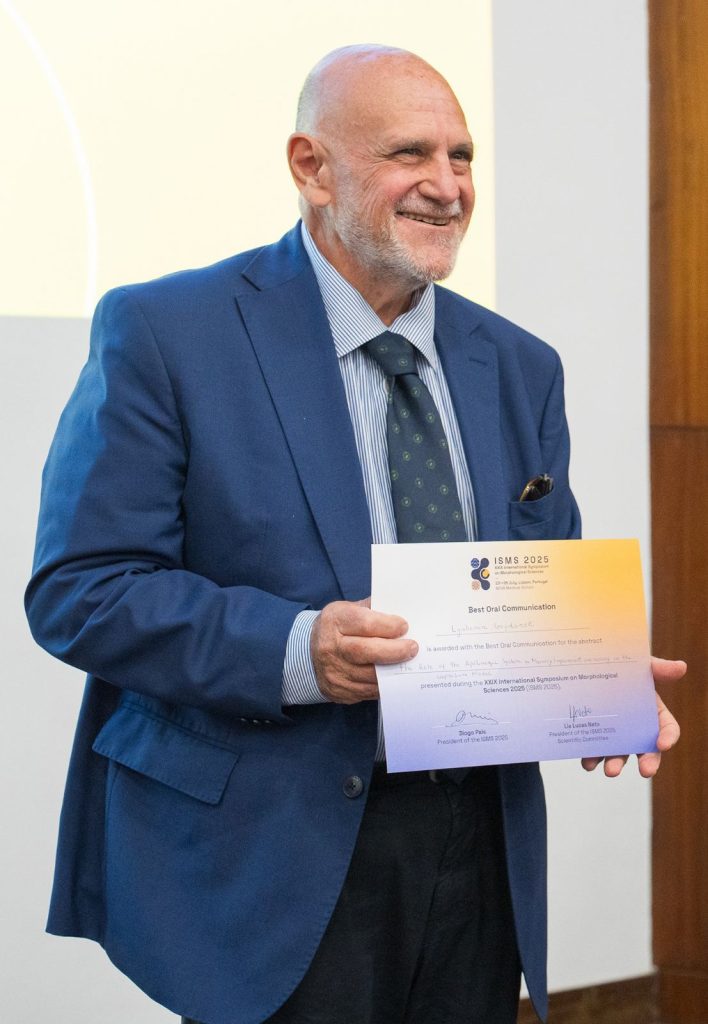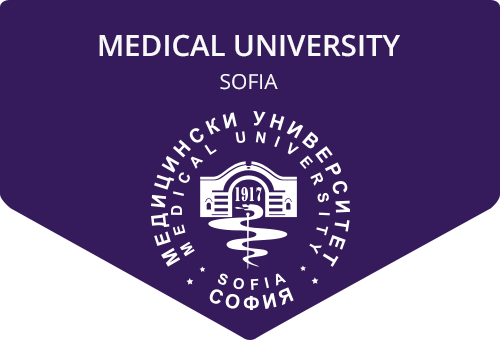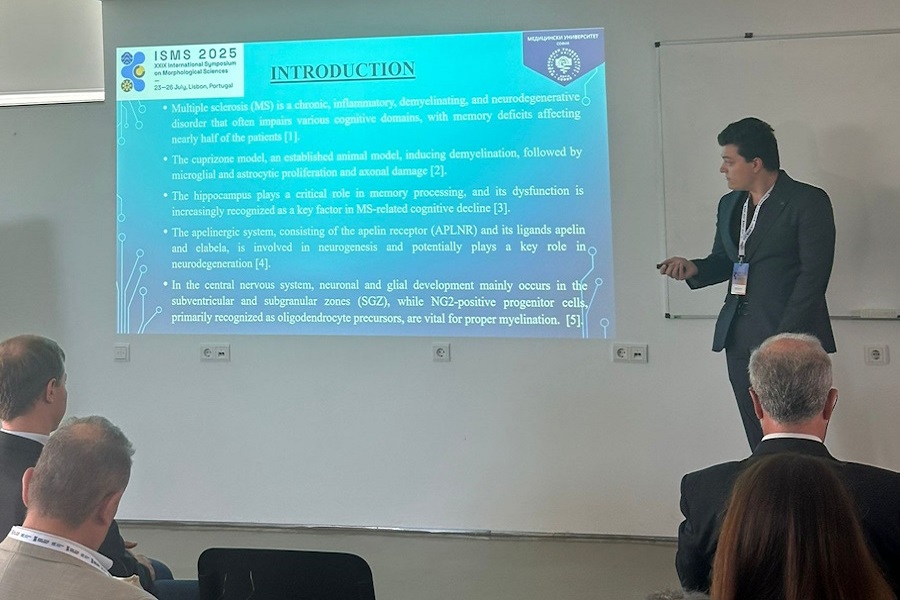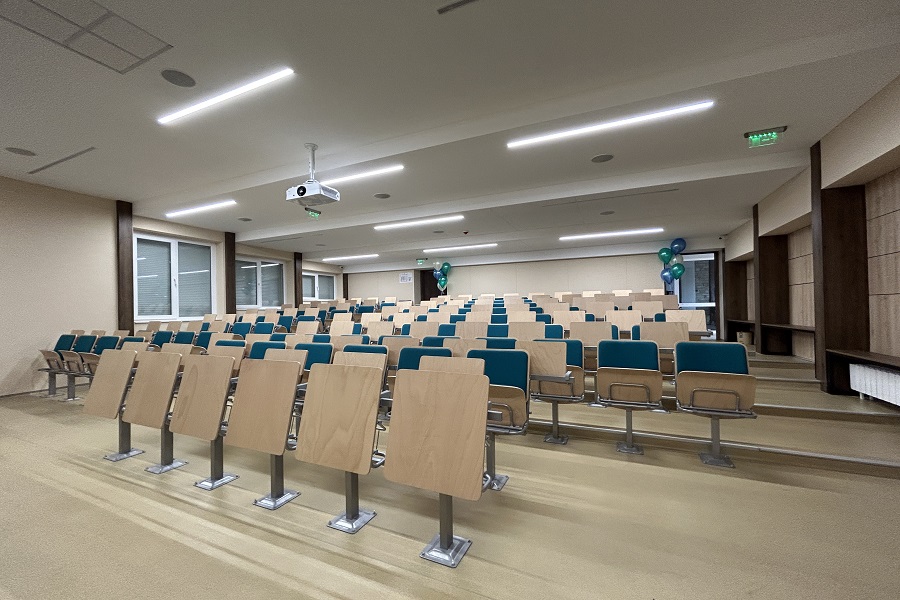An assistant professor in the Department of Anatomy, Histology and Embryology won the first prize for the best presentation at the XXIX International Simposium of Morphological Sciences (ISMS 2025 – https://www.isms2025.org/ ), held in Lisbon on July 23-27, 2025. The young scientist Dr. Lyubomir Gaidarski, who is the winner of the “Golden Hippocrates” award of the Class of 2024 of MU – Sofia, also received personal recognition from Prof. Diogo Pais, President of the congress, who expressed his admiration for his brilliant presentation. The award certificate was presented to him by Prof. Lia Lucas Neto, President of the ISMS Scientific Committee.

The ISMS forum is one of the most significant events in the field of anatomy and cell biology and this year passed under the motto “Morphological Sciences: Foundations of Life”.
The presentation of the Bulgarian team on the topic “THE ROLE OF THE APELINERGIC SYSTEM IN MEMORY IMPAIRMENT AND RECOVERY IN THE CUPRIZONE MODEL” aroused great interest and active scientific discussion. The team of authors, including Dr. Lyubomir Gaidarski, Dr. Kristina Petrova, Dr. Nikola Stamenov, Dr. Stancho Stanchev, Dr. Alexander Iliev, Assoc. Prof. Ivanka Kostadinova, Assoc. Prof. Pavel Rashev, Assoc. Prof. Milena Murdjeva, Assoc. Prof. Georgi P. Georgiev and Prof. Boycho Landzhov, presented the latest data from their original study in the field of neurodegeneration with the potential for the development of therapeutic approaches in multiple sclerosis.
The study is a result of the research work of the team on the project “Study of molecular, cellular and behavioral changes in the processes of demyelination and remyelination in the cuprizone model of multiple sclerosis” (MP-13), implemented within the framework of investment BG-RRP-2.004-0004-C01 “Strategic Research and Innovation Program for the Development of Medical University – Sofia”, funded by the National Recovery and Resilience Plan. The main goal of MP-13 is the identification of molecular targets and their transfer in the development of targeted therapy.




